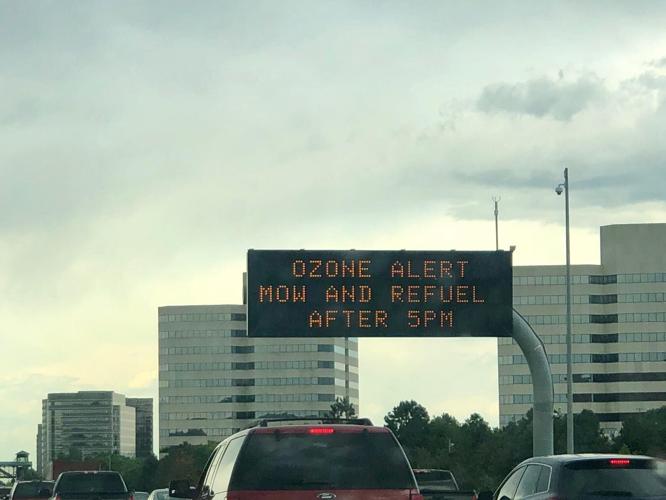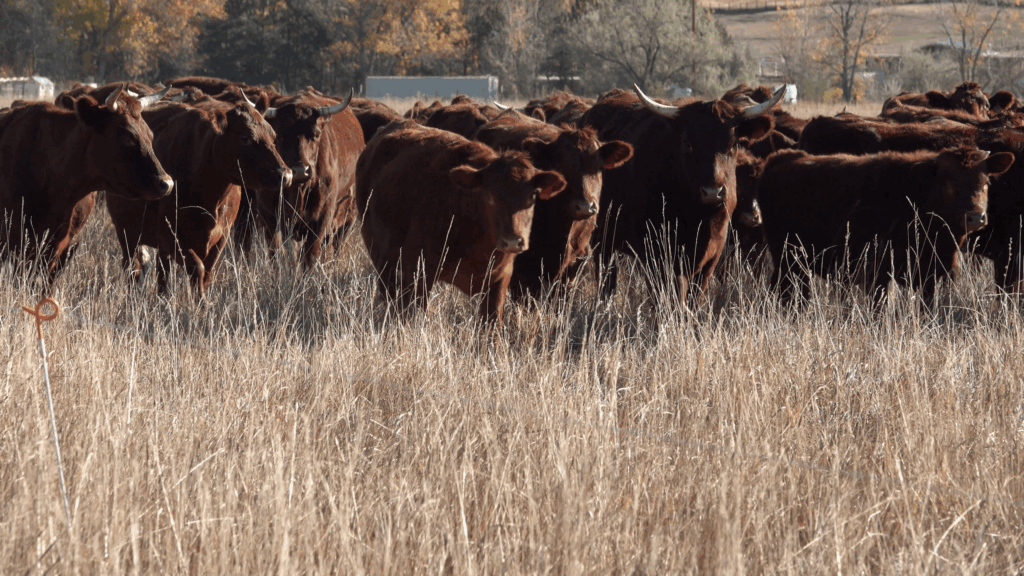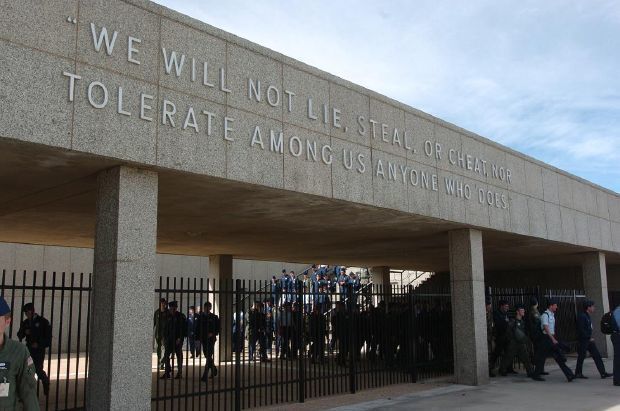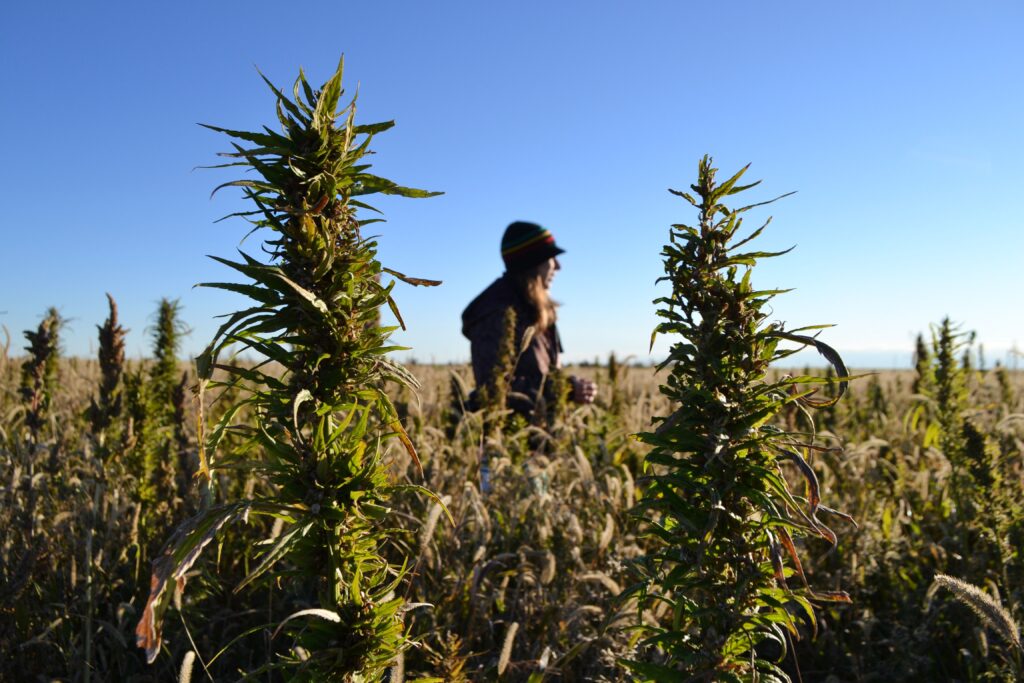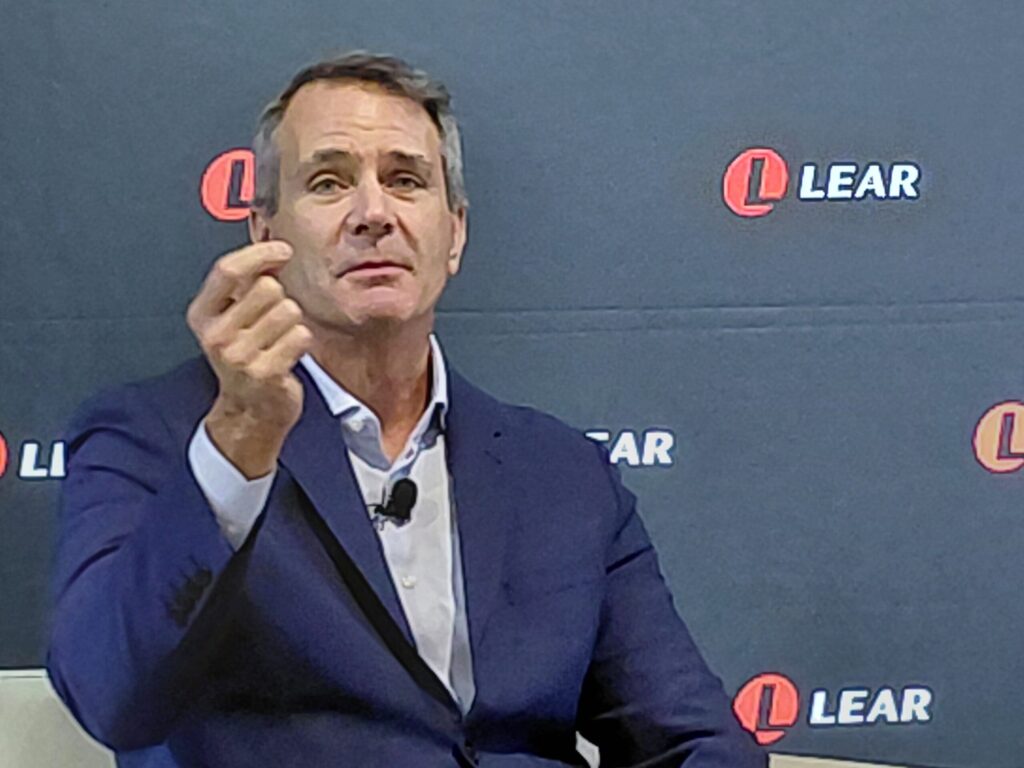Air pollution officials approve new ozone-fighting rules

FILE PHOTO: Kirsten Schatz, with the Colorado Public Interest Research Group, speaks to media members about a recently released report on ozone-causing pollutants from gas powered lawn and garden equipment while standing behind a display of electric garden equipment on Thursday, Dec. 1, 2022, at Sloan’s Lake Park in Denver, Colo. (Timothy Hurst/The Gazette)
Timothy Hurst/Denver Gazette
New regulations to help control ozone pollution that critics call “punitive” and “ineffective” were approved, but not formally enacted, during a rulemaking proceeding before the Air Quality Control Commission last week.
The regulation’s final wording won’t go into effect until Feb. 15-16, when final approval is expected at the commission’s regular meeting. The public hearing phase has been closed.
The commission discussed a number of issues and regulations in the meetings held Dec. 12-15, and voted to approve the 2008/2015 Ozone State Implementation Plan and associated regulations.
“It’s been a busy year for cleaning up Colorado’s air. The commission has adopted many rules in 2023 that will help reduce air pollution now and in the years to come.” said Commissioner Curtis Rueter in a statement. “With our adoption of Colorado’s State Implementation Plan and other regulations, we have a clear path forward to bring cleaner air to our vibrant communities.”
The State Implementation Plan is a requirement of the Environmental Protection Agency for localities where ozone measurements exceed EPA limits. The EPA’s nonattainment designation for Colorado includes nine counties from Douglas County in the south to Weld and Larimer counties in the north, as well as Boulder, Denver, Arapahoe, Jefferson, Adams and Broomfield counties.
The federal agency downgraded the area’s ozone pollution rating from serious to severe on Sept. 15.
“Colorado has to work extra hard to reduce ozone pollution because of the state’s topography, but we are up to the task,” said Michael Ogletree, director of the state health department’s Air Pollution Control Division.
One reason Colorado has to work extra hard is because, according to the Air Pollution Control Division, in 2023 roughly 78% of ozone in the nonattainment area west of Fort Collins comes from background, natural, wildfire and other anthropogenic sources outside the area — including from states upwind and from as far away as China.
That means Colorado has the ability to control only about 22% of the ozone that is putting the state in violation of Clean Air Act standards, according to air pollution experts.
Environmental attorney Paul Seby told The Denver Gazette, “In the face of the fact that a very significant portion of the continuing ground level ozone problem along the Front Range is transported from outside Colorado, the Polis administration and the AQCC continue to churn out punitive and ineffective measures that only add costs on Colorado citizens — many whom can least afford their big price tags.”
Dan Haley, president and CEO of the Colorado Oil & Gas Association, said proponents have claimed oil and gas contribute upward of 40% of Colorado’s ozone pollution, but Haley said there is no evidence of this.
“Nowhere in the non-attainment area does oil and gas account for even 10 percent of total ozone pollution,” said Haley in a previous statement to The Denver Gazette.
The AQCC approved regulations created by the APCD requiring oil and gas operators to “reduce emissions during the summer months when ozone pollution is highest.”
This restriction applies to drilling and pre-production operations, including “fracking.” Fracking is the practice of drilling deep horizontal wells, thousands of feet underground, and injecting high-pressure fluid to crack the underground rock formations to release more natural gas and oil.
Operators will also have to make efforts to reduce emissions of nitrogen oxides “over time.” They will also have to reduce emissions from engines that operate equipment and generators statewide, including vehicle-mounted engines used during drilling, according to the regulation.
The Colorado Oil & Gas Association and the American Petroleum Institute Colorado, in a news release, commended the Air Pollution Control Division staff “on their diligent approach to the rulemaking and appreciate the thoughtful consideration demonstrated throughout this process. COGA & API Colorado support effective ozone mitigation strategies that are based upon technically accurate evidence and realistic and consistently achievable targets.”
Also on the chopping block are government-owned gasoline-powered lawn and garden equipment, starting in June 2025. This applies statewide to all state and local government agencies including public colleges, universities, school districts and special districts, and includes contracts for such work.
“The regulation would provide a balanced approach, still affording Coloradans the freedom to use the lawn equipment they choose,” according to a commission news release. “The commission’s new regulation would impact federal and state agencies and local governments during the summer months. It would provide exemptions for emergency response measures such as equipment use during wildfire mitigation.”
But bans on gas-powered government equipment are not the whole story.
Commissioners also considered placing restrictions on commercial use of lawn care equipment and want to eventually replace gasoline powered equipment with electric alternatives.
While commissioners were said by observers to have struggled with the issue, in the end they directed the APCD to monitor the market trends and market share of electric lawn and garden equipment and report back to the commission no later than the end of 2025. At that time the APCD will request a new rulemaking that will provide opportunity for public participation and comment.
“We have a chance to tackle our air pollution problem by switching to cleaner, quieter, readily available electric lawn equipment,” said Colorado Public Interest Research Group Foundation clean air advocate Kirsten Schatz in a statement. “Our air quality leaders have an opportunity this month to take bold action and transition us away from the dirtiest gas-powered lawn equipment as quickly as possible.”






